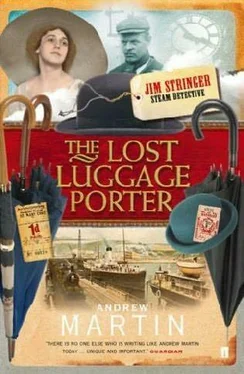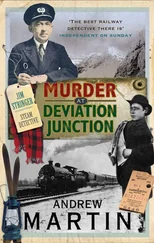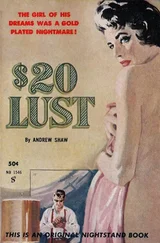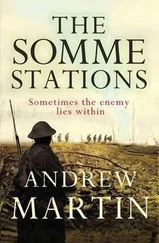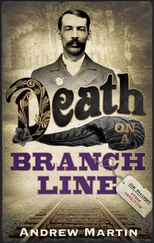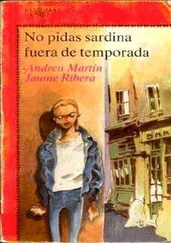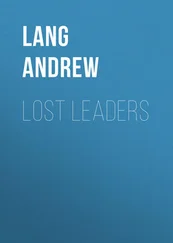Andrew Martin - Lost baggage porter
Здесь есть возможность читать онлайн «Andrew Martin - Lost baggage porter» весь текст электронной книги совершенно бесплатно (целиком полную версию без сокращений). В некоторых случаях можно слушать аудио, скачать через торрент в формате fb2 и присутствует краткое содержание. Жанр: Детективная фантастика, на английском языке. Описание произведения, (предисловие) а так же отзывы посетителей доступны на портале библиотеки ЛибКат.
- Название:Lost baggage porter
- Автор:
- Жанр:
- Год:неизвестен
- ISBN:нет данных
- Рейтинг книги:4 / 5. Голосов: 1
-
Избранное:Добавить в избранное
- Отзывы:
-
Ваша оценка:
- 80
- 1
- 2
- 3
- 4
- 5
Lost baggage porter: краткое содержание, описание и аннотация
Предлагаем к чтению аннотацию, описание, краткое содержание или предисловие (зависит от того, что написал сам автор книги «Lost baggage porter»). Если вы не нашли необходимую информацию о книге — напишите в комментариях, мы постараемся отыскать её.
Lost baggage porter — читать онлайн бесплатно полную книгу (весь текст) целиком
Ниже представлен текст книги, разбитый по страницам. Система сохранения места последней прочитанной страницы, позволяет с удобством читать онлайн бесплатно книгу «Lost baggage porter», без необходимости каждый раз заново искать на чём Вы остановились. Поставьте закладку, и сможете в любой момент перейти на страницу, на которой закончили чтение.
Интервал:
Закладка:
'More to your liking now, are they?'
'Aye,' I said.
'You're nuts,' he said, very firmly and definitely. Then the cigarette went back in.
I walked out of the shop with the glass-less glasses and the suit bundled into my portmanteau on top of the magazines. I walked towards the gentlemen's lavatory in Coney Street, down the steps to where the wash-and-brush-up man waited. I knew him to be a sensible fellow in a white coat (every one of the dozen or so hairs on his head very carefully Brilliantined), and he did not blink an eye at the sight of me in my spectacles. It was a test, and he – or I – had passed it.
I put a ha'penny in the door slot, and locked myself in one of the WCs, where I put the old suit on, laying my good one on top of the magazines in the bag. Then I pulled the chain for good measure. As I stood there amid the roaring York waters, I tried to tell myself: my blood is up; this is all quite a lark, and on better wages than I earned on the footplate. But I kept wondering: ought I not to have been given a police whistle or some other method of giving the alarm? I was too much at large in the world; I wanted the rules and protection of the railwayman's life.
I stepped out of the WC, and the wide looking glass was before me. The sight checked me for a second. I was Allan… Allan something, late of Halifax. Factory turns and work in the fields – that had been my lot; and a spell in the workhouse at Bradford. I saw myself as Allan, approaching York on foot from Leeds, alone in the wide fields, with a griming of snow on the soil. Plainly I was in want of a tattoo but otherwise I fancied I looked the part.
I now trudged miserably on, killing time around the narrow ancient streets, where the rain raced along the wide stone gutters, and the houses were kept up by force of habit alone. The York citizens, with their derby hats and celluloid collars, had the care of the city for a little while, but before long there'd be a new lot, with different hats and collars. I remembered a scrap of history about York from the schoolroom at Baytown: 'Here history is almost the history of Britain.' What were the deaths of two brothers when set against that?
I walked on, thinking about the wife at home typewriting behind the long garden with the washing line too high, like a telegraph wire. How could my work be kept secret from her? It seemed unimaginable, with her brains.
The stiff, damp suit wanted to walk in a different way to my way – or to lie down and die, just as its late owner had certainly done. At getting on for 3 p.m., I crossed over Lendal Bridge, went past the new North Eastern office – that great riverside stack of railway clerks – and through the arch in the Bar Walls towards the station. Walking through the portico, past all the shouting carters and cabmen, I thought: I should not be showing my face here. I was too close to the Police Office, base of my operations, but I had to stow my good suit.
This I did in the Left Luggage Office, a far brighter and cheerier spot than the Lost Luggage Office, full of whistling blokes and light. I made sure the warrant card and the Derbies were in the pocket of the suit I handed over; I held on to the Railway Magazines though. As I turned away from the office, clutching the ticket I'd been given in return for the suit, I saw the Lad, rushing along with his telegraph form. 'How do… Cheerio' he said, laughing as he shot past. I walked quickly off the platform. It was then that I saw, over on Platform Six, which was generally the one for Leeds, an engine belonging to my former employers, the Lancashire and Yorkshire Railway, the black paint with red piping. It was a 0-6-0 Class, one of the Wigan Bashers, good for any kind of work, from pick-up goods to main line. The Wigan Basher had four coaches on, and it was heartbreaking to see it pulling away, not tied down to rain, cocoa smell and dreary York ways.
I took my dinner at the bargeman's cafe on the King's Staith, walked about a bit more; took a pint at the Ouse Bridge Tavern, then stepped out into lamplight and dark rain shine.
It was nigh on four o'clock when I struck out for Layerthorpe.
Chapter Eight
Carmelite Street I knew to be somewhere in the shadow of Leetham's Flour Mill, which was nigh-on five times higher than the terraces roundabout. Evening was coming down fast as I walked towards the mill, which had three silos, like cricket stumps, connected at the top by the conveyor, which was like the bails. On its other side, the mill looked onto, and dropped things into, the River Foss, which ran along as best it could between the little terrace houses of Layerthorpe. No trippers came this way; the Illustrated Guides had nothing to say about Layerthorpe, except maybe to warn strangers off.
Carrying my bagful of Railway Magazines, I entered a dead-end street. At the bottom of it was a wall covered in an advertisement for boot polish. It held a picture of a bootblack calling 'Shine, sir?' then, in bigger letters 'SHINE, SIR!' Wouldn't take no for an answer, that one.
I turned right down an alleyway between two houses, just in time to see a kid boot a dead rat along the road. Above his head, a wooden sign stuck between the two walls read: 'The Tiger'. That was another pub to be found somewhere in this maze, but it was a couple of minutes more before I came on the one I wanted.
There was no garden and there was no gate, and there was hardly any pub come to that. It was just one thin house in the terrace. Above the door and to the right, a tiny tin sign said 'ALES', like a stamp on a letter. The words 'Garden Gate' were spelt out in small white letters on the black door. I stood there picturing every kind of York cadger and area sneak putting back beer inside. I pushed at the door, and walked in.
His cap was off, and his hair was round and white like a jellyfish, but it was the big oaf, the Blocker, all right – standing just inside the door with his coat open in a tiny blue room filling with smoke from a badly laid fire, which set my eyes stinging straightaway. The Blocker seemed to be looking directly at my glass-less spectacles. Then, to my relief, he turned away Approaching the bar, I glanced down and noticed my wedding ring. Allan Appleby was not a married man. I pulled it off as I stepped up to buy a drink. Serving on was an old fellow who stared at me all the while as he raised up a pewter of beer from somewhere below the bar. Leaning on the bar to my left was another elderly party, like the barman seen in a looking glass. And there was another present, sitting by the fire on a rocking chair: the Brains, the dip who haunted the Scotch expresses.
A bottle of stout was on the floor by the side of his chair, and he was raising and lowering two long keys on a rusty ring that hung from the end of the longest finger of his right hand. He sat in his coat, but his hat was off, and he had scant black curly hair and sleepy eyes. He looked like a musician, I thought, and I wondered why he could not have put his long fingers to better use by learning to play the mandolin, or some such thing.
He was watching me as I walked towards the bar, and the Blocker spoke up as I walked past, but I didn't catch the words. I ordered a pint of Old, drank it off fast with shaking hands; ordered another. I stood side on to the bar, my portmanteau at my feet. The Blocker was leaning on the door, blocking it, giving me the eye. The Brains was still playing with the long keys. Taking a deep breath, I pitched in: 'I'd be obliged for another glass of Old,' I said to the barman, 'and two more for these lads.' I pointed at the Blocker, and the Brains. They were looking back at me, holding fire, waiting further developments. Then, as the landlord started to pull the beer pump, I added: 'Can you not do owt about your fire?' 'Want more coal on it, do you?' he said. 'Less, if anything,' I replied, 'and a little air put to it, perhaps.' This drew the Blocker, who said: 'Who are you giving orders to?' 'Nobody,' I said. Silence again. The Brains had put down the keys, folded his arms. He was watching me. It was the old barman who spoke next: 'Are you a sanitary inspector by any chance?' he said. I shook my head. 'Because you better fucking not be,' called out the Blocker. The drinks were now being set on the bar. I put one on the fireside table in front of the Brains; handed one to the Blocker. On receiving the ales, neither man said anything; but they continued to stare. At last, the Brains spoke up: 'I'm obliged to you for the pint,' he said, 'but what's it in aid of?' 'Just being hospitable,' I said. 'But the Gate's our boozer,' said the Blocker, 'so by rights, it's up to us to be hospitable to you.' As he spoke, I heard a sound from the direction of the door. It was the Blocker, sliding home the bolt. A longish silence, broken once again by the Blocker: .. Speaking of hospitals' he said, 'you're going just the right way to ending up in one.' 'I've come to see you specially, like'1 said. The Brains said: 'How did you know we were here?' 'Might as well give out that I followed you last night' I lied. 'But we never came here last night,' said the Brains, sounding curious more than anything, 'not directly at any rate.' 'That's right,' I said. 'I know it is' said the Brains. 'You went somewhere else beforehand' I said. 'Where, for Christ's sake?' 'Over yonder,' I said, moving my hand so as to maybe indicate everywhere else in the city. 'But where exactly?' asked the Brains, almost smiling. 'You went to a pub' I said. Well, it seemed a fair hazard. 'What bloody pub?' said the Blocker, impatient. 'Don't recollect the name' I said. 'I'd spotted the pair of you at the station, see? A chap had on a very heavy coat. And you lightened it for him. It was a very good bit of work.' The blackness rolled from the fire; the old boy at the bar said another thing I couldn't catch. 'Well' said the Brains after a while, 'what's your interest in the matter?' 'I was thinking you might be able to use another pair of hands.' Long silence. The Brains stood up. 'I've never seen you round the rattler before' he said. 'I'm new in town, like.' 'From where?' 'Hebden Bridge.' 'And where's that, when it's at home?' This was the Blocker speaking. 'Next door to Halifax,' I said. 'How did tha get bread there?' asked the Blocker. 'Had a go-on in a factory, like.' 'A factory making what?' asked the Brains. 'Screws' I said. I looked at the Brains: a foxy-looking sort: skimpy hair, sleepy eyes; a lot of eyelid visible at all times. Pickpocket… Well, it was a skill above the ordinary thief. 'I had a bit of a run-in with the charge hand… got stood down over it, so then I worked in the fields for a time… Over Bradford way. That was last back end – harvest time.' 'And when the harvest was in?' the Brains asked. 'Workhouse,' I said. 'It was a pretty soft doss.' 'Got a name?' said the Brains, with the creeping smile about his lips as before. 'Allan,' I said. 'Allan bloody what?' said the Blocker. 'Allan Appleby' I said. 'Bollocks' said the Blocker. I gave a glance down at the portmanteau, saying, 'I had this away earlier on.' I kicked the bag over towards the Brains, who stood up, plucked out one of the magazines, leaving a page dangling on which we both read the words 'British Locomotive Practice and Performance.' From over by the door, the Blocker said: 'What's this rubbish?'
Читать дальшеИнтервал:
Закладка:
Похожие книги на «Lost baggage porter»
Представляем Вашему вниманию похожие книги на «Lost baggage porter» списком для выбора. Мы отобрали схожую по названию и смыслу литературу в надежде предоставить читателям больше вариантов отыскать новые, интересные, ещё непрочитанные произведения.
Обсуждение, отзывы о книге «Lost baggage porter» и просто собственные мнения читателей. Оставьте ваши комментарии, напишите, что Вы думаете о произведении, его смысле или главных героях. Укажите что конкретно понравилось, а что нет, и почему Вы так считаете.
